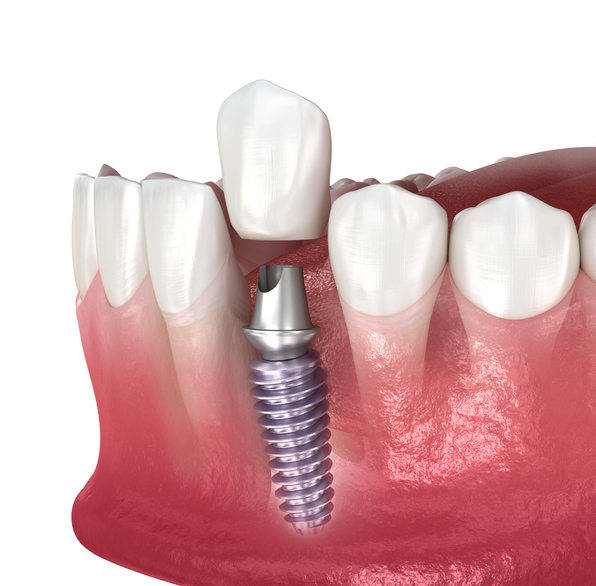
Are you interested in receiving dental implants? If you are, you might have more than a few questions regarding the placement and maintenance of these teeth replacements. Here are just a few of the most commonly asked questions about dental implants in Long Island, and how Dr. David R. Scharf can give you the smile of your dreams.
How Do Dental Implants Work?
Dental implants are composed of three portions: a metal post that is implanted into your jaw tissue, an abutment that joins the crown and the post, and the actual crown, which is custom-made to match the rest of your existing teeth. Dental implant posts are designed to mimic your natural bone tissue, allowing your jaw to eventually fuse to the post and create a strong and stable biting surface.
Why Replace Your Missing Teeth?
Although many people find themselves putting off tooth replacement, living with missing teeth can be detrimental to your health and your smile. After losing a tooth, the bone tissue starts to resorb or melt away. This process occurs rapidly, with most people losing about 25% of their bone ridge height within a year. Once bone loss begins, it can weaken your entire periodontal arch and change the contours of your jawline and face shape.
When Were Dental Implants Invented?
The first dental implants were actually invented in the mid-1950s by accident by a Swedish orthopedic surgeon named Per-Ingvar Brånemark. While studying bone growth and healing in rabbits, the surgeon noticed that titanium fused with bone tissue. He continued his research on dental implants, and they have been widely used since the 1980s.
What Are the Advantages of Dental Implants Over Other Alternatives?
Dental implants in Long Island offer a long list of advantages over other tooth replacement alternatives, including the fact that they are strong, stable, and incredibly realistic. Dental implants also halt bone loss and won’t put a strain on the other teeth, protecting your jaw and smile. Patients with dental implants also find that they are easier to care for since they don’t require special maintenance other than daily brushing, flossing, and rinsing.
How Long Can I Expect Dental Implants to Last?
One of the best things about dental implants is that with proper care and maintenance, they can last 20 years or more. Many patients enjoy implants for a lifetime, while dentures need to be refitted or remade every 5-7 years.
Will I Need Other Procedures Before Implants?
Depending on the current condition of your teeth and jaw, you may or may not need prerequisite procedures before implants can be placed. Some patients need to have gum disease treatment before implants can be placed, while others may need bone grafting to create a strong and stable anchoring point for implants. The only real way to know what you will need is to have a periodontal exam and consultation.
Who Is Qualified To Place Dental Implants?
Although there are many doctors out there who advertise the fact that they offer dental implants, periodontists receive an additional three years of specialized training focusing on the placement and maintenance of dental implants. As a board-certified periodontist, a qualification that only one in three periodontists achieve, Dr. Scharf has an incredible amount of experience and training, helping you to avoid complications and improve your outcome.
Why Consider Dental Implants Now?
Modern dental implants are more advanced and realistic looking than ever before. In addition to flexing slightly with the rest of your teeth, modern composites designed to make implants mimic the natural opacity of your smile—creating a seamless repair. New imaging technologies have also improved implant placement, lowering your risk for complications and implant failure.
Want To Learn More? Schedule Your Appointment Today
If you think that dental implants sound like something that would work for you, schedule a consultation with Dr. Scharf today. Dr. Scharf’s entire office is completely dedicated to your health and happiness and will do everything they can to keep you comfortable throughout the implant placement process.
